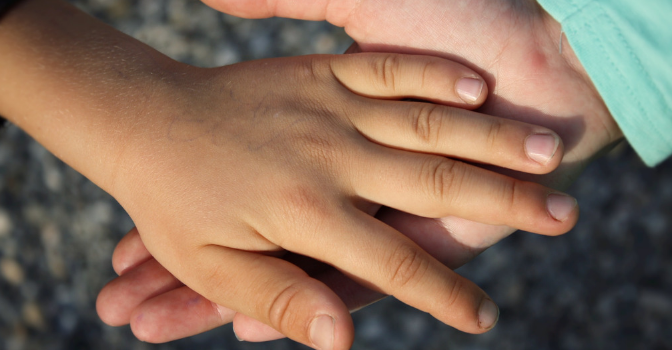I’ve been working with children at a special education preschool for the past 4 months, and the students have taught me a thing or two about being an adult and, quite simply, a human being.
1. Have your own feelings, and let others have theirs.
Instead of describing someone as “overly sensitive,” use the words “more sensitive.” Instead of saying, “You made me sad…,” say, “I felt sad when…” Society has normalized only certain degrees of feelings, boxing us into a limited array of “appropriate” emotions, when, in fact, emotions have been and always will be individualized.
2. Communication is key.
Facilitating peer-to-peer repair is an important aspect of teaching special education. In life, you are going to have thoughts and feelings that you cannot control. It is important to communicate them to those around you instead of bottling them up. You can explain what happened to make you feel or think that way and in return, you’ll probably receive some empathy from a listening ear. Most everyone has empathy on some basic level, and so much of our negative thoughts and emotions are the result of accidents or misunderstanding.
3. Behavior tells a story.
Sometimes, our mouths get dammed up and we don’t know how to put into words what we’re feeling. Body language and reactions are communications in their own right. For children with special needs who lack the language to express what they want or what they’re feeling, we teachers strengthen their trust by reading, understanding, and appropriately–compassionately–responding to their non-verbal cues.
4. Be an active listener.
Though many of my kiddos struggle with making eye contact, they still know whether or not they are being heard based on eye contact from others and general interest in their words. Because the children are building their language skills, we routinely model sentence structures for them, but only after giving them a chance to tell us the story in their own words. We give them our full attention, concentrating and then responding directly to what they just said. This not only improves upon their communication skills, but also gives them a sense of value.
5. Goals are best accomplished one step at a time.
Scaffolding is an important aspect of special education teaching which involves breaking down lessons into smaller, more manageable steps. Goals should be set high but they should also be attainable. Learning–whether in school or in life–is best achieved when we slow down, take a step back, and look things over an extra time or two.
6. You have more patience than you realize.
Special education requires an incredible amount of patience, especially in a room full of energetic preschoolers. I honestly did not know I had this much of an inner calm inside me. My patience is tried literally every thirty seconds throughout the six-hour school day, but I very rarely ever find it stretching too thin. (Though I do want to fall asleep by 8 PM. 🙂 ) This is hugely based on the effort I have put into building relationships with these mini humans, the time I have taken to understand them, with or without their words. Moments that seem trying are usually just a misunderstood child trying to be understood.
7. Everyone deserves to be loved.
When I worked in the animal world, I fell in love with patients that struggled the most–a three-legged sheep, turtles missing flippers–and clients that perhaps carried a lot of baggage–crotchety old men, socially awkward folks. I’ve always been drawn to those who are misunderstood (#pitbullsarethegreatest), and children with special needs too often are. It’s such a privilege to be working at a school where cochlear implants and hearing aids are the norm, where listening and equipment checks are part of our morning routine. Even when a student is screaming in my face or punching my arm, I still have an overwhelming desire to help them learn how to process their feelings–and I remind them that it’s okay to have these feelings, because that’s what makes them who they are. They’re not different; they’re all just tiny humans finding their way in the world, and needing a little extra help along the path.
What are some life lessons you’ve learned from children? Share in the comments below!

